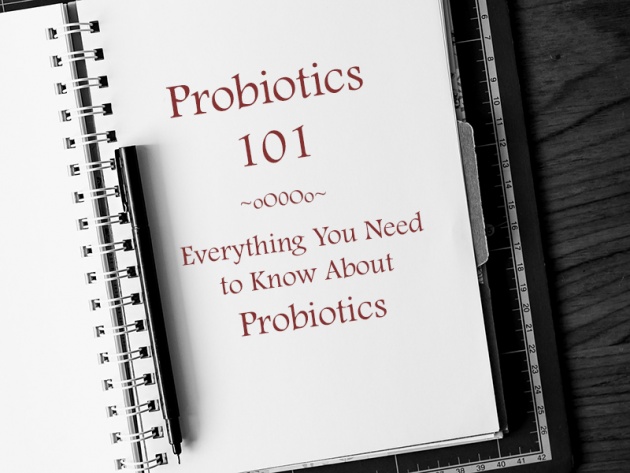
Image credit: Chineyes via bitLanders
When we think about bacteria, we immediately think about diseases. So it's surprising to learn that there are actually good bacteria that our bodies can benefit from. Probiotic is one such example. Let's learn more about probiotics, shall we?
What are Probiotics?
Probiotics are often called 'helpful' or 'good' bacteria because they help keep our tummy healthy. These are live yeasts and bacteria that line the digestive tract and help the body absorb nutrients while fighting infections.
According to mayoclinic.org:
Probiotics are good bacteria that are either the same as or very similar to the bacteria that are already in your body.
There are many strains of probiotic bacteria that have health benefits, but the most common probiotics consumed are strains of two main species which are Bifidobacteria and Lactobacillus.
Bifidobacteria. Bifidobacteria is mostly used in supplements and foods and are thought to reduce harmful bacteria growth in the intestine and help break down lactose into nutrients that the body can use, as well as support the immune system.
Lactobacillus. Lactobacillus is a type of bacteria that is naturally found in the mouth, small intestine, and vagina. It produces lactase, the enzyme responsible for breaking down milk, sugar, or lactose. Lactobacillus also produces lactic acid which helps limit the reproduction of bad bacteria. Additionally, it serves as fuel for the muscles and assists the body absorb minerals.
Do not confuse probiotics with prebiotics, the dietary fibers that help supply the friendly bacteria found in your gut with food.
6 Common Strains of Probiotics
There are various strains of probiotics and you will often find them combined with the species name. For example, the Lactobacillus or Bifidobacteria species are abbreviated as L or B and added to the individual strain name. The most common ones are:
- B. animalis
- B. breve
- B. lactis
- B. longum
- L. acidophilus
- L. reuteri
How Does Probiotics Benefit Our Health?
According to the Harvard Medical School, our bowels host trillions of microorganisms from more than 500 different species. Wow! That's a lot. Each person has a different mix of bacteria just like our fingerprints. However, our gut flora can change due to various factors like stress or illness which can create digestive problems, among other things. Probiotics help prevent such problems by changing your gut bacteria composition in a positive way. These friendly bacteria limit the population of the bad ones by crowding them out. Thus, preventing infections and inflammations. Aside from helping the digestive system, some probiotics strain can also simulate the immune system so you are more protected against contracting diseases. Listed below are some more benefits of probiotics. Some of them may even surprise you.
- Probiotics aid the digestive system.
- Probiotics can prevent and treat diarrhea or constipation.
- Probiotics can relieve vaginal infections.
- Probiotics promote healthier skin.
- Probiotics can help prevent autoimmune diseases.
- Probiotic supplements can help improve some mental health conditions.
- Some strains of probiotics can prevent heart diseases.
- Probiotics may be able to improve your immune system.
- Probiotics help fight urinary infections.
- Probiotics may even help you lose your excess fat.
Foods Rich in Probiotics
The most popular source of probiotics that we know of is probably Yakult, a probiotics dairy milk made from fermented skimmed milk and a special strain of Lactobacillus casei. But, did you know that there are certain foods that are rich in probiotics?
Here are just some examples food rich in probiotics.
- Yogurt
- Kefir
- Sauerkraut
- Kimchi
- Tempeh
- Miso
- Kombucha
- Pickles
- Traditional buttermilk
- Some cheeses (gouda, cheddar, parmesan, swiss)
Probiotics Killers
If there are foods rich in probiotics, there are also foods and other things that can kill them. Here are some of them.
- Sugar
- GMO foods
- Inflammatory gluten
- Medications
- Emotional stress
- Lack of exercise
- Overuse of prescription antibiotics
- Poor sleeping habits
- Alcoholic drinks (except for red wine)
- Smoking
- Being too clean
The Bottom Line
A long long time ago probiotics are easily found on foods when they were still grown without the aid of chemicals and technology, However, the modern way of growing food has reduced how much probiotics we can get from food alone. Hence, the rise in popularity of many probiotics supplements. Taking these supplements is a good way to increase your probiotic intake. However, you need to understand that not all strains work the same way or have the same effect on different individuals.



